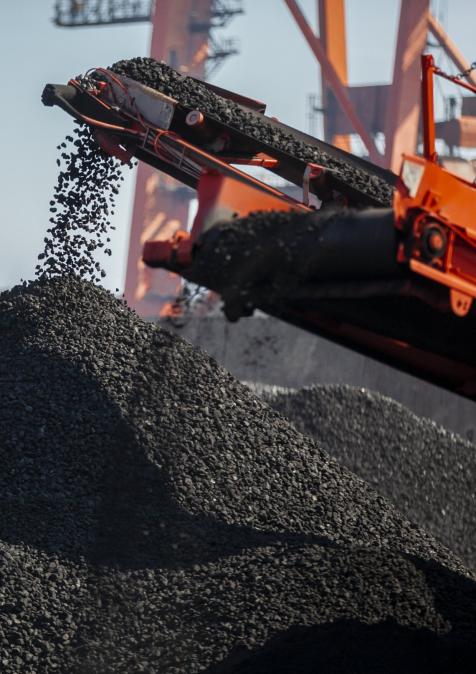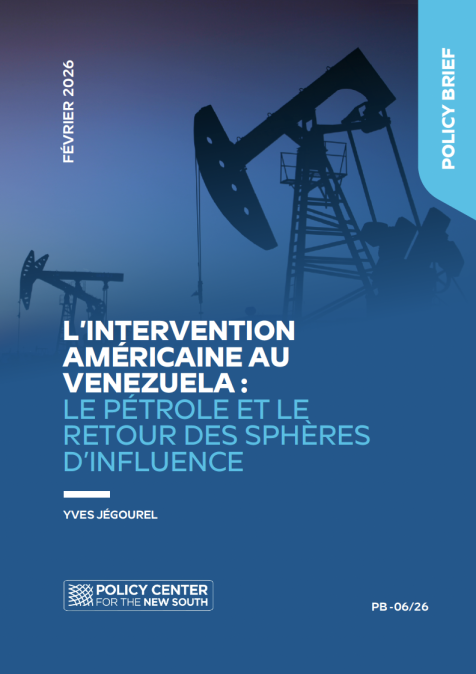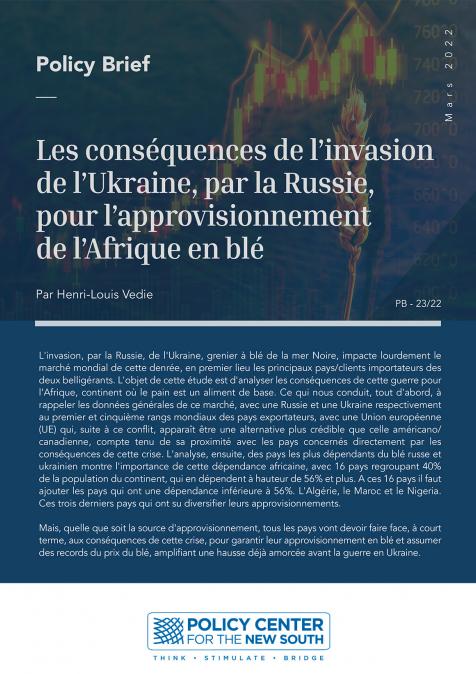Publications /
Opinion
A Series of Disruptions
The freighter, on its way from the United Arab Emirates to Bulgaria, loaded with 21000 metric tons of fertilizer, was hit by two Houthi missiles on February 18, 2024, at a point 93 miles east of Aden. The Houthi—not an army but rebels—are firing on ships in solidarity with the tortured people in Gaza, and their leaders, Hamas. Like Hamas, the Houthi are armed by Tehran.
The European Union has started a mission to send frigates into the Red Sea, providing protection for container ships, freighters, giant oil tankers that dare to pass the coast of Yemen, attempting to reach the Suez Canal and ports in Europe. Business is down at the canal. Shipping companies are directing their vessels to follow safer routes, around South Africa, a longer, more expensive voyage. The Houthis are one more hiccup in a destabilized world. The missile attacks will slow global supply chains even more. Trust in supply chains is fading, just as it did during the COVID-19 pandemic, when unreliability was in vogue.
New vocabularies point towards fragmentation of the world, which once considered globalization as an economic miracle. ‘Friend-shoring’ and ‘near-shoring’ indicate trustworthy partners, and reliable supply chains, resisting fragmentation, waves of protectionism, and resource nationalism. The new trend of separatism “draws supply chains into the sphere of geopolitical rivalry”, observed the German Institute for International and Security Affairs (July 2022), and the division of the world into free-market democracies and allies of the authoritarian regimes of China and Russia. “Global supply chains are entering 2024 roiled by disruptions at two of the worlds crucial trade corridors”, noted the Wall Street Journal (January 2, 2024).
Meanwhile, a lack of rainfall in Panama is forcing the authorities to reduce the number of vessels transiting through the Panama Canal, a key corridor for trade between Asia and the U.S. east coast. Paul Berger, the Wall Street Journal writer, noted that “wars in Ukraine and in the Middle East are threatening flows of grain, oil, and consumer goods. Climate change and mass migration are disrupting trade lanes from the Panama Canal to the U.S.-Mexico border. Growing geopolitical tensions are making international supply chains ever more complex”. Global trade flows are shifting as importers increasingly look away from China for alternative suppliers in countries including Vietnam, India, and Mexico. In 2023, the Central American nation surpassed China as the U.S.’s largest trading partner. The succession of disruptions to world trade through political or military interventions have put the reorganization of international supply chains high on the political agenda.
No surprise then that the Rabat-based Policy Center for the New South produced a timely and fascinating (February, 2024) exposé of new challenges facing African nations in a Policy Paper titled ‘When the Elephants Fight, Africa Transforms: The New Geopolitics of Supply Chains for Critical Minerals and the Emergence of Local Value Chains’. The authors, Sabine Emran and Oussama Tayebi, analyze the dramatic opportunities for African nations that discover rare minerals on their territories, worth the price of gold and diamonds: “In the context of the energy transition, African nations play a crucial role, particularly in the supply chain for lithium batteries, which represents a significant market opportunity…”.
One of the more surprising examples noted by the Policy Center for the New South analysts is the war-torn Democratic Republic of the Congo. Its population of 112 million population, forever in the shadow of devastating conflicts, is finally allowed to dream of a human future. The hidden treasures in the ground, hopefully, will one day soon benefit not only a select few—African, American, or Chinese conglomerates—but the citizens of the country. Cobalt, needed for the production of lithium batteries produced for electric cars, is waiting to be extracted, millions of tons, a cheque for the future. “Others are alert to the region’s potential as a hub for value chains”, wrote the African Development Bank Group in a study (October 24, 2023): “Last December, on the sidelines of the U.S.-African leaders summit in Washington, the U.S. signed a memorandum with the DRC and Zambia to develop an integrated value chain for the production of electric vehicle batteries in the two African countries”. The DRC controls 51% of the world’s cobalt reserves as well as huge hydroelectric power potential. The country is thus uniquely positioned to become a low-cost and low-emission producer of lithium, says the African Development Bank-Group report, titled ‘Strengthening Africa’s role in the Battery and Electric Vehicle Value Chain’. Lithium batteries dominate the EV market and represent about 48% of the global rechargeable battery market. Many of the minerals needed to produce them, including cobalt, lithium, manganese, nickel, and graphite, are available in the DRC, Zambia, South Africa, Madagascar, Mozambique, Tanzania, and Gabon.
Watching Zimbabwe
”Rare earth elements—a group of 17 metals—are critical for both human and national security”, wrote Brookings (December 29, 2022). “They are used in electronics (computers, TV, and smart phones), in renewable energy technology (wind turbines, solar panels, and electro vehicle), and national defense (jet engines, missile guidance and defense systems, satellites, GPS equipment). In 2021, global demand for rare earths reached 125 000 tons. By 2030, it is forecast to trade 315 000 tons”. Demand for the so-called green minerals, including copper, graphite, and rare-earth minerals, is set to surge as wealthier nations seek to decarbonize their economies by, in part, shifting to a clean energy system, says the International Energy Agency.
“Rich in green minerals, African countries eye the booming electric vehicles and clean energy market worth trillions of dollars”, reported the African Development Bank Group. Their experts estimate the electric vehicle market to be worth $57 trillion by 2050. Yet, “significant investment in supply chain infrastructure is needed to transform the continent into a global battery production hub. This will entail creating an environment capable of attracting the private sector, which has the technical expertise and logistic know how to power Africa’s manufacturing sector while ensuring high returns on investment”.
The Kingdom of Morocco, noted the African Development Bank Group, “signed in June 2023 a $6.4 billion agreement with Chinese battery manufacturer Gotion High-Tech Co for the construction of a factory to manufacture EV batteries in Rabat-Salé-Kénitra region” Brookings recalled in a paper that the production of these rare-earth minerals has remained under the control of one nation: China has a dominant hold on the market, with 60% of global production and 85% of processing capacity. Africa’s full rare earth potential is largely untapped, given low levels of exploration. In 2021, the mining exploration budget of sub-Saharan Africa was the second lowest in the world—roughly half of that of Latin America and Australia.
The search, more often than not, is still focused on gold, rather than rare earth or green metals critical for the clean energy transition. Yet, in January 2023, Zimbabwe, a struggling nation, startled the world by banning all exports of lithium. It intended “to produce electric car batteries in the country itself, instead shipping [lithium] out in its raw state” (Position paper, In on Africa, April 11, 2023). African nations with strategic mineral deposits and rare-earth reserves, including others in the region such as Burundi, Rwanda, and the DRC, “are watching Zimbabwe’s maneuvering”. The urgency of the climate crisis has accelerated the global demand for minerals to fuel the clean-energy transition in renewables, electric vehicles and more, noted the Wilson Center (October 31, 2023). “This push has put China’s involvement in critical mineral mining and refining in the global south, especially on the African continent, in the spotlight”.
The authors of the Policy Center for the New South paper documented their exposé with more well-researched facts and figures, focusing on China’s might in the mineral market: 85% to 95% control of the refining of rare earths, 70% of cobalt, 65% of nickel, 60% of lithium needed in batteries for electric cars are under Chinese management and control. The risk of excessive dependence on China in the minerals sector is reason for alarm. How will China deal, for example, with open support for Taiwan from Washington or/and the European Union, if the enemies one day clash in combat? Will Beijing use the supply chains for rare earths and other critical minerals as political tools? Bombs or batteries, that could be the question.










